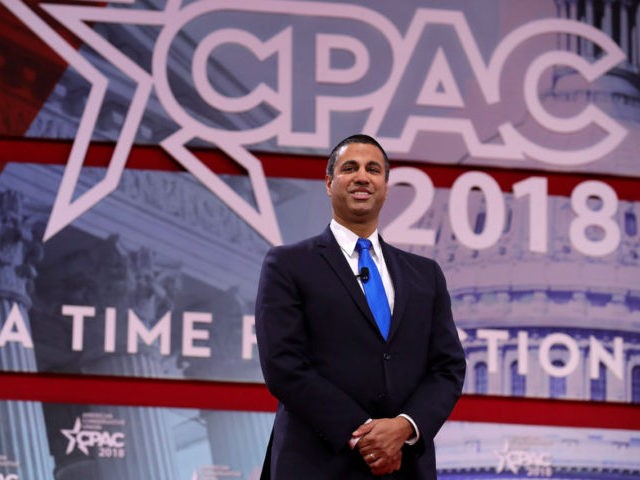Federal Communications Commission Chairman Ajit Pai said Monday he will support the merger of T-Mobile and Sprint following commitments by the companies to expand wireless service in rural America and build out a 5G network across the United States.
Pai’s approval substantially increases the likelihood that the deal will ultimately be allowed to move forward. In the past, FCC leaders had taken a stance opposing moves that would bring the number of nationwide competitors in mobile communications down from four to three.
Leaders from T-Moblie and Sprint have argued that they need to combine to compete with their larger rivals, Verizon and AT&T. They have argued that the combi9ned company would have enough capital and access to financing to invest in 5G technology nationwide, which in turn would prompt more investment from Verizon and AT&T.
“Two of the FCC’s top priorities are closing the digital divide in rural America and advancing United States leadership in 5G, the next generation of wireless connectivity,” Pai said in a statement released Monday. “The commitments made today by T-Mobile and Sprint would substantially advance each of these critical objectives.”
The Trump administration has made the development of 5G technology a major strategic goal for U.S. policy. The administration is worried that China, through its mobile giant Huawei, could dominate the next generation of mobile communications technology if the U.S. government does not adopt the appropriate policies that encourage investment.
The agreement still needs to be formally approved by the FCC’s governing panel, although that is pretty much assured after Monday’s announcement. Antitrust regulators, however, must also approve the merger.
In 2011, the FCC and the Justice Department opposed AT&T’s proposal to acquire T-Mobile. Some say Monday’s announcement marks a change in the stance of the FCC. Trump appointee Pai has been a critic of over-regulation of the industry and does not regard imposing a rigid structure on the industry as necessary to promote competition and protect consumers.
But the approval may not be as dramatic of a shift as it seems. Some telecom industry watchers say the Spring and T-Mobile tie-up poses less of a threat to competition and more of an enhancement, creating a third telecom giant that can more readily compete with AT&T and Verizon.
Sprint and T-Mobile have agreed to provide 5G service covering 97 percent of the U.S. population within three years and 99 percent within six years. That would mostly employ Sprint’s mid-band wireless spectrum. The companies have also made firm commitments to expand into rural areas, which could aid President Donald Trump to once again win votes in areas that strongly supported him in 2016.
“This 5G network would also reach deep into rural areas, with 85% of rural Americans covered within three years and 90% covered within six years,” Paid said.
While neither company would be required to shed spectrum licenses, Sprint has agreed to sell its prepaid wireless business Boost.
The deal still requires approval by antitrust attorneys at the Justice Department. AT&T’s acquisition of Time-Warner was opposed by the Justice Department, although federal courts ultimately let the transaction move forward. But many of the Justice Department’s concerns about that deal, such as the notion that AT&T could use its market power to limit access to Time-Warner content for customers of other cable and wireless companies, would not apply here.

COMMENTS
Please let us know if you're having issues with commenting.